History lesson should give all Detroit Lions fans hope for the future
The unalterable reality of sports is that for every win there has to be a corresponding loss. As Detroit fans have learned too well over time, some of those losses are more soul-crushing than others.
The most recent example, of course, is the Detroit Lions’ collapse against San Francisco last Sunday. But leafing through the imaginary “Big Book of Detroit Sports Misery,” one finds page after page of heartbreaking precedents. A sampling:
In the deciding Game 7 of the 1934 World Series, the Detroit Tigers are humiliated 11-0 in front of the home crowd by Dizzy Dean and the St. Louis Cardinals.
In 1944 and 1967, the Tigers lose the pennant on the last day of the season.
Up 3 games to 2, the Detroit Pistons drop the last two games of the 1988 NBA Finals to the Los Angeles Lakers, helped by the infamous “phantom foul” on Bill Laimbeer.
The Detroit Red Wings are beaten by the Colorado Avalanche in the 1996 Western Conference Finals, best remembered for Claude Lemieux’s infamous hit on Kris Draper.
What’s interesting about these agonizing defeats is what it says about resilience. In each instance, the punch in the gut was followed by a shower of confetti the next season. The Tigers immediately bounced back to win World Series in 1935, 1945 and 1968; the highly motivated Red Wings recovered to win the next two Stanley Cups (Darren McCarty administering a satisfying thumping to Lemieux along the way); and the Bad Boys reeled off back-to-back NBA titles, including an oh-so-sweet sweep of the Lakers.
Lessons were learned, adjustments were made, experience was gained and championships followed.
The rise of Bobby Layne
Which brings us to the 1951 Lions — a young, talented, but still unproven team on the cusp of something big.
Like this year’s Lions, the 1951 edition had their season skid to a halt in San Francisco. It was Buddy Parker’s first year as head coach, and he had inherited a team almost two decades removed from its only championship. But thanks in part to savvy trades and draft picks by his predecessor, Bo McMillan, the roster was loaded with gifted performers early in their pro careers.
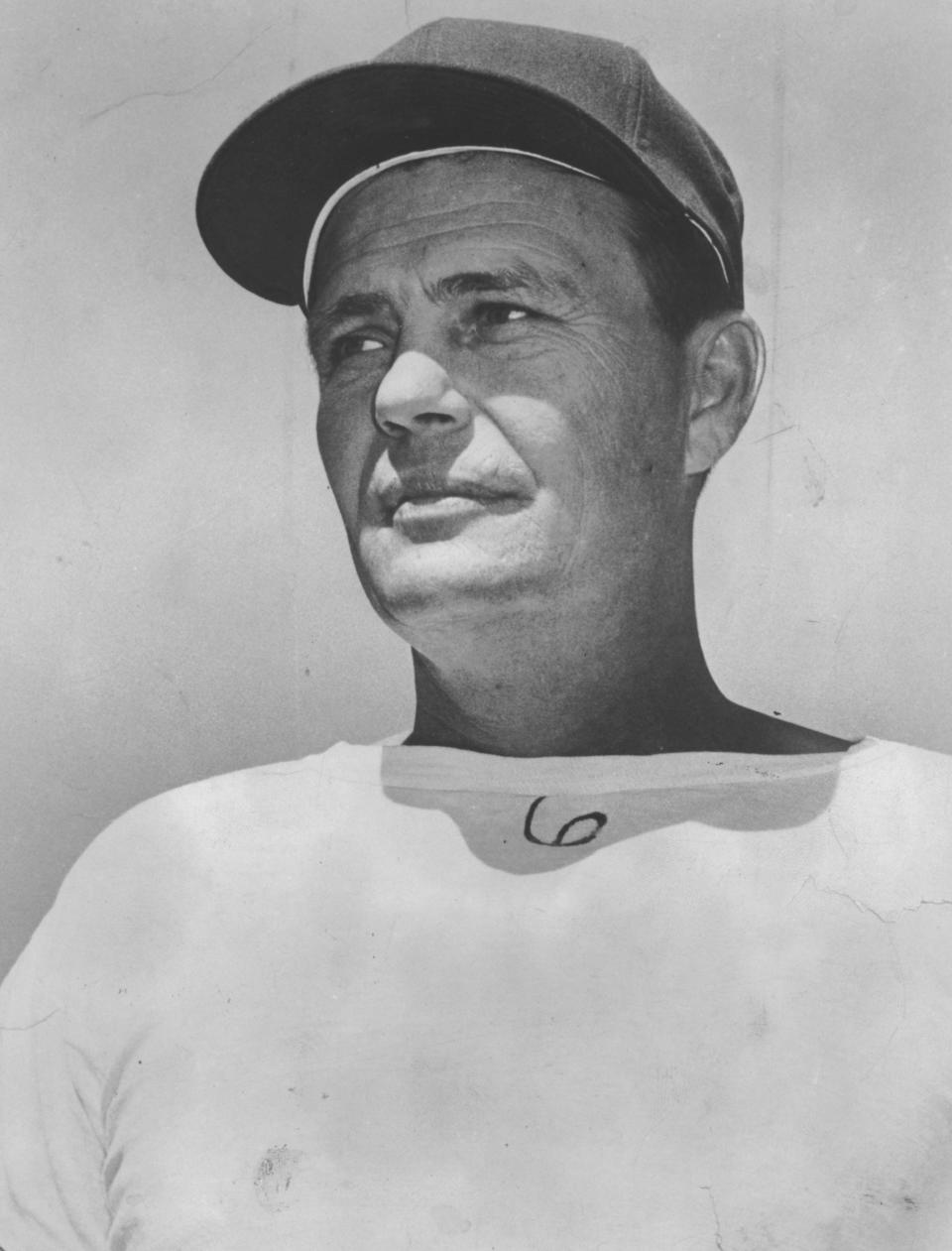
The incomparable Bobby Layne was in his second year as Detroit’s quarterback and unchallenged leader. In the backfield was another storied Texan, Heisman Trophy winner Doak Walker. The little halfback-kicker was a scoring machine known for his grit and clutch touchdowns.
On the offensive line, Lou Creekmur was in his second of eight straight Pro Bowl seasons. In the secondary, another future Hall of Famer, feather-footed rookie Jack Christiansen, set punt return records that stood for decades. Meanwhile, Les Bingaman, at 375 pounds the game’s heaviest player, was positioned like a parked DeSoto in the middle of the defensive line.
Leon Hart, who’d won the Heisman at Notre Dame, was a dominating two-way end. Imagine Sam LaPorta and Aidan Hutchinson rolled into one 6-foot-5, 265-pound package. Hart used his size and reach in 1951 to score a club-record 12 touchdowns and also snag a couple of interceptions.
‘Kick the stuffing out of somebody’
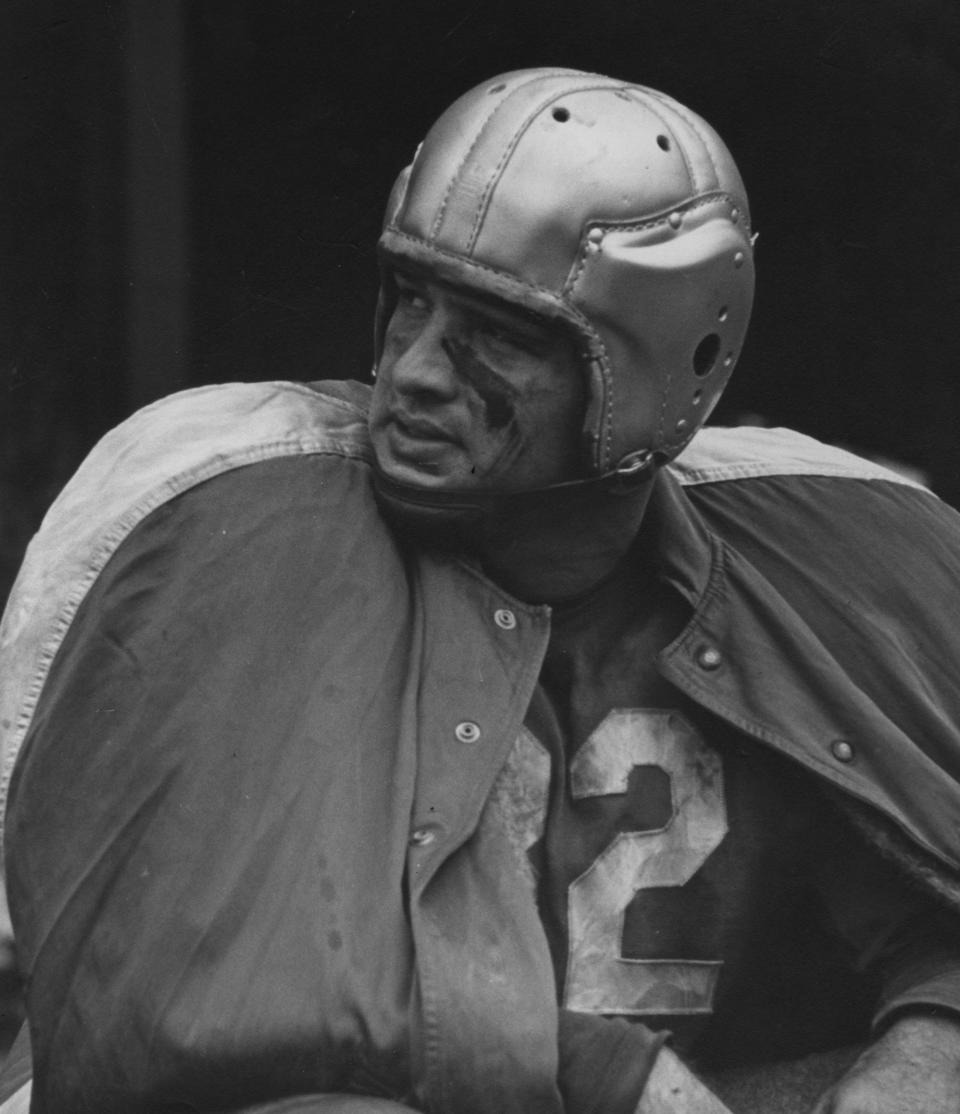
On the final Sunday of the 1951 regular season, four teams — Detroit, Los Angeles, San Francisco, and the Chicago Bears — had a chance to win the division. The only one controlling its own destiny was first-place Detroit (7-3-1), a half-game ahead of the pack. Win or tie at San Francisco, and the Lions would be hosting the Cleveland Browns at Briggs Stadium for the championship. At stake was about $2,000 per man in playoff loot, about $23,000 adjusted for inflation.
Television was still in its infancy, but the game at Kezar Stadium was important enough to warrant the expense of carrying the broadcast in Detroit. “We got to win this one,” said fullback Ollie Cline. “The extra dough will just about pay off the mortgage on the house.”
It was a seesaw affair. Detroit seemed in command, establishing a 10-0 lead, but the 49ers rallied to make it 14-10 at the half. In the third quarter, Layne hit Hart with a scoring pass to put Detroit ahead, 17-14. There matters stood until the tense final minutes, when a long punt return set up quarterback Y. A. Tittle’s short scoring run. San Francisco sealed its 21-17 victory when Layne threw his fourth interception of the day.
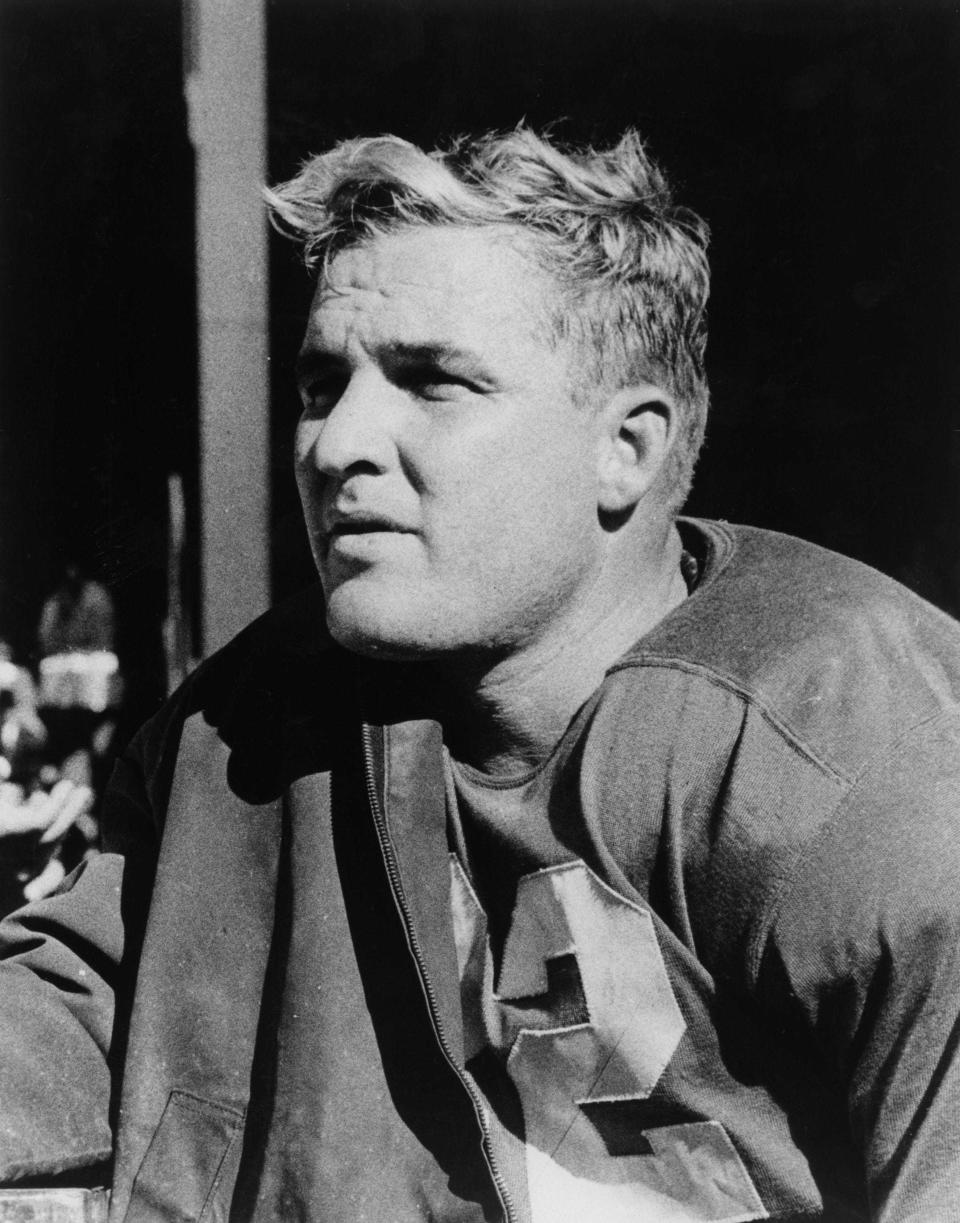
The beaten Lions were defiant. The team had come far, but at the very end what had been theirs for the taking slipped through their fingers.
“As I walked off the field,” Tittle recalled in his autobiography, “Hunchy Hoernschemeyer, the Lions’ halfback, said something nasty to me, called me a dirty name. He was boiling mad — we had upset Detroit.”
Beating the best
Inside the somber locker room, players stewed in their disappointment. Finally, veteran fullback Pat Harder stood on a bench and, waving a towel, yelled, “We’ll be back next year to kick the stuffing out of somebody!”
Harder’s cocky determination was shared by teammates, who the Free Press described as “a hungry herd of Lions” as they muscled their way to a 9-3 record in 1952. Parker drafted well, with rookie defensive backs Yale Lary and Jimmy David having an immediate impact under newly hired defensive coordinator Buster Ramsey.
The ’52 squad whipped the Rams in a divisional tiebreaker, 31-21 at foggy Briggs Stadium, then went on to beat the Browns, 17-7, for the championship. All told, Detroit beat the league’s top two powerhouses, the Rams and Browns, five times in regular and postseason play that year. The Lions had arrived.
To prove it was no fluke, the Lions repeated as champs in 1953, Layne tossing the winning TD pass in the waning minutes of a 17-16 thriller against the Browns in Detroit. They followed up with a third consecutive division title in 1954, though Cleveland finally beat them in the title game.
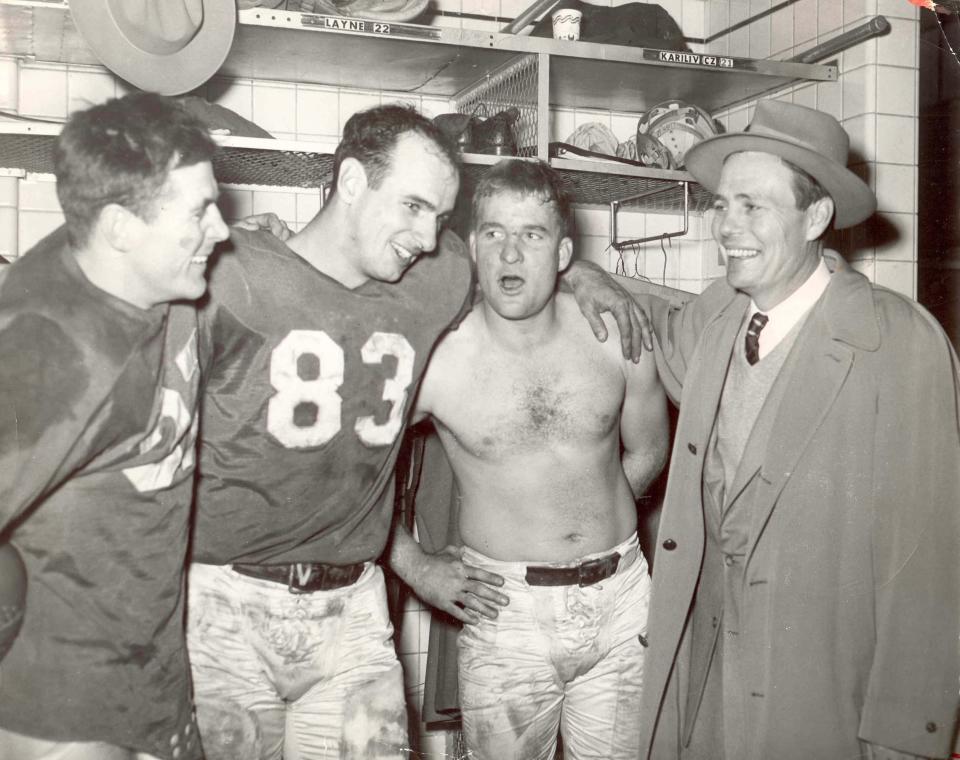
In 1956, the Lions faced the same situation they had in 1951. They met the Bears in the regular-season finale, needing just a tie to advance to the title game. Again they lost, this time in a controversial slugfest that saw Layne knocked out by a cheap hit. Fans and players were bitterly disappointed.
But, as before, the Lions rebounded to win it all the following year. They did it in true championship style, overcoming Parker’s shocking resignation and Layne’s season-ending injury. Behind new head coach George Wilson and quarterback Tobin Rote, they stormed back from a 20-point deficit to beat the 49ers, 31-27, at Kezar in a division playoff and then walloped the Browns, 59-14, inside raucous Briggs Stadium for the title.
As the entire world learned during this year’s playoff run, that 1957 championship remains the Lions’ last. So the drought continues — 67 years and counting.
MORE: Explaining the Curse of Bobby Layne on the Detroit Lions
However, there’s a certain vibe about today’s Lions. Many believe they’re genuinely poised to become a dominant NFL franchise again. Like the 1951 squad, they’re not quite there yet. When it comes to biting kneecaps, sometimes a hungry team has to nibble at the ankles before working its way up.
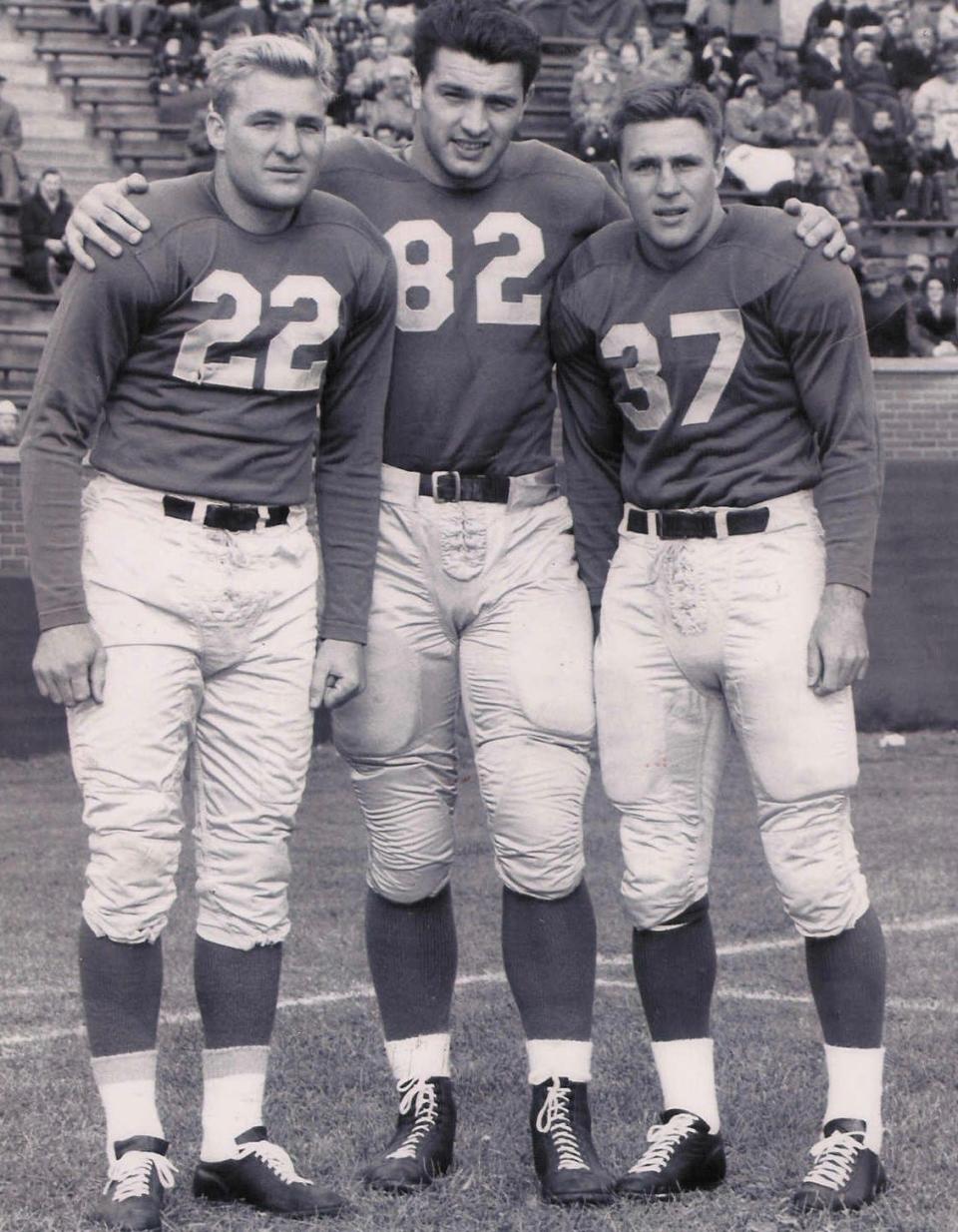
Richard Bak is the author of “When Lions Were Kings: The Detroit Lions and the Fabulous Fifties.”
This article originally appeared on Detroit Free Press: Detroit Lions faced gut punch before championships in 1950s

